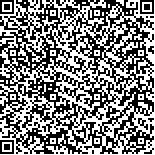| 李思妮,褚嘉栋,金 莹.Sotorasib对比多西他赛用于经治的KRASG12C突变晚期非小细胞肺癌:一项随机对照、开放标签、Ⅲ期临床研究[J].肿瘤学杂志,2024,30(1):73-81. |
| Sotorasib对比多西他赛用于经治的KRASG12C突变晚期非小细胞肺癌:一项随机对照、开放标签、Ⅲ期临床研究 |
| Sotorasib Versus Docetaxel for Previously Treated Non-Small Cell Lung Cancer with KRASG12C Mutation: Interpretation of A Randomized, Open-Label, Phase 3 Trial |
| 投稿时间:2023-12-19 |
| DOI:10.11735/j.issn.1671-170X.2024.01.B013 |
|
 |
| 中文关键词: 非小细胞肺癌 KRASG12C Sotorasib 多西他赛 |
| 英文关键词:non-small cell lung cancer KRASG12C Sotorasib Docetaxel |
| 基金项目: |
|
| 摘要点击次数: 586 |
| 全文下载次数: 247 |
| 中文摘要: |
| 摘 要:Sotorasib是一种特异性的、不可逆的GTPase蛋白KRASG12C抑制剂。CodeBreaK 200研究比较了Sotorasib与一种标准治疗方案在既往接受过其他抗肿瘤药物治疗的KRASG12C突变非小细胞肺癌(non-small cell lung cancer,NSCLC)患者中的疗效和安全性。研究者在22个国家的148个中心进行了一项随机、开放标签的Ⅲ期试验。该研究招募了年龄在18岁以上、既往含铂化疗和PD-1或PD-L1抑制剂治疗进展后的KRASG12C突变晚期NSCLC患者。关键的排除标准包括:出现新发或进展的未经治疗的脑部病变,或有症状的脑部病变、存在除KRASG12C以外的驱动基因突变(如EGFR或ALK)、既往接受过多西他赛治疗(若肿瘤在终止治疗后6个月内未进展,则允许使用多西他赛进行新辅助治疗或辅助治疗)、既往接受过KRASG12C抑制剂治疗、在研究第1天的前28天内接受过系统性抗肿瘤治疗,并在治疗开始2周内接受了治疗性或姑息性放疗。以开放标签的方式将入组患者随机1∶1分为Sotorasib口服组(960 mg,每日1次)和多西他赛静脉输注组(75 mg/m2,每3周1次),根据晚期疾病患者既往治疗线数(1 vs 2 vs >2)、种族(亚洲vs非亚洲)和中枢神经系统转移史(有 vs无)进行分层。治疗持续到独立中心确认疾病进展、患者不耐受、开始另一种抗癌治疗、撤回同意或死亡,以先发生者为准。主要终点是无进展生存期,在意向治疗人群中通过盲态独立审阅中心进行评估,对所有接受治疗的患者进行安全性评估。该试验已在ClinicalTrials.gov注册(编号NCT04303780),目前仍处于有效状态,但不再招募患者。在2020年6月4日至2021年4月26日期间,345例患者被随机分配至Sotorasib组 (n=171)或多西他赛组(n=174)。Sotorasib组和多西他赛组中各有169例(99%)和151例(87%)患者接受了至少一次剂量的治疗。在中位随访17.7(IQR:16.4~20.1)个月后,该研究达到了主要研究终点。与多西他赛组相比,Sotorasib组的无进展生存期显著性增加[5.6个月(95%CI:4.3~7.8) vs 4.5个月(95%CI:3.0~5.7);HR=0.66(95%CI:0.51~0.86);P= 0.001 7]。与多西他赛组相比,Sotorasib组耐受性良好,3级及以上(33% vs 40%)和严重的治疗相关不良事件(11% vs 23%)更少。Sotorasib最常见的3级或以上的治疗相关不良事件是腹泻 (12%)、谷丙转氨酶升高(8%)和谷草转氨酶升高(5%);而对于多西他赛,最常见的3级或以上的治疗相关不良事件是中性粒细胞减少(9%)、疲劳(6%)和发热性中性粒细胞减少(5%)。相比较于多西他赛,Sotorasib显著性提高既往接受过其他抗肿瘤药物治疗的 KRASG12C突变晚期NSCLC患者的无进展生存期,且具有更优的安全性。 |
| 英文摘要: |
| Abstract: Sotorasib is a specific, irreversible inhibitor of the GTPase protein KRASG12C. CodeBreaK 200 is a multi-center, randomized, open-label, phase Ⅲ clinical trial at 148 centers in 22 countries, which compared the efficacy and safety of sotorasib with a standard-of-care treatment in patients with non-small cell lung cancer (NSCLC) with the KRASG12C mutation. The study enrolled patients aged at least 18 years-old with KRASG12C-mutated advanced NSCLC, who progressed after previous platinum-based chemotherapy and a PD-1 or PD-L1 inhibitor. The key exclusion criteria included new or progressing untreated brain lesions or symptomatic brain lesions, previously identified oncogenic driver mutation other than KRASG12C for which an approved therapy was available (e.g. EGFR or ALK), previous treatment with docetaxel (neoadjuvant or adjuvant docetaxel was allowed if the tumour did not progress within 6 months after the therapy was terminated), previous treatment with a direct KRASG12C inhibitor, systemic anticancer therapy within 28 days of study day 1, and therapeutic or palliative radiation therapy within 2 weeks of treatment initiation. The trial randomly assigned (1∶1) patients to oral sotorasib (960 mg, once daily) or intravenous docetaxel (75 mg/m2, once every 3 weeks) in an open-label man ner using interactive response technology. Randomization was stratified by number of previous lines of therapy in advanced disease (1 vs 2 vs >2), ethnicity (Asian vs non-Asian), and history of central nervous system metastases (present vs absent). Treatment continued until an independent central confirmation of disease progression, intolerance, initiation of another anticancer therapy, withdrawal of consent, or death, whichever occurred first. The primary endpoint was progression-free survival, which was assessed by a blinded, independent central review in the intention-to-treat population. Safety was assessed in all treated patients. This trial was registered at ClinicalTrials.gov, NCT04303780, and is active but no longer recruiting. Between June 4, 2020 and April 26, 2021, 345 patients were randomly assigned to receive sotorasib (n=171) or docetaxel (n=174), 169 (99%) patients in the sotorasib group and 151 (87%) in the docetaxel group received at least one dose. After a median follow-up of 17.7 months (IQR: 16.4~20.1), the study met its primary endpoint of a statistically significant increase in the progression-free survival for sotorasib, compared with docetaxel [median progression-free survival [5.6 months (95%CI: 4.3~7.8) vs 4.5 months (95%CI:3.0~5.7), hazard ratio= 0.66(95%CI:0.51~0.86); P=0.001 7]. Sotorasib was well tolerated, with fewer grade 3 or worse (33% vs 40%) and serious treatment-related adverse events compared with docetaxel (11% vs 23% ). For sotorasib, the most common treatment-related adverse events of grade 3 or worse were diarrhoea (12%), alanine aminotransferase increase (8%), and aspartate aminotransferase increase (5%). For docetaxel, the most common treatment-related adverse events of grade 3 or worse were neutropenia (9%), fatigue (6%), and febrile neutropenia (5%). Sotorasib significantly increased progression-free survival and had a more favourable safety profile, compared with docetaxel, in patients with advanced NSCLC with the KRASG12C mutation and who had been previously treated with other anticancer drugs. |
|
在线阅读
查看全文 查看/发表评论 下载PDF阅读器 |